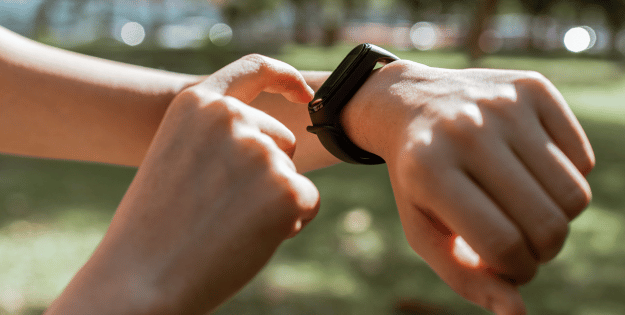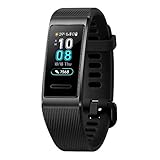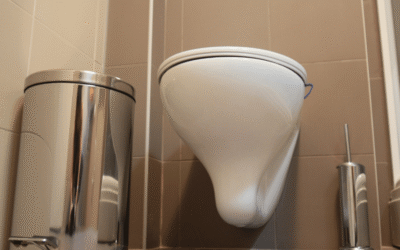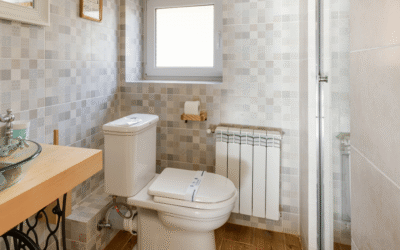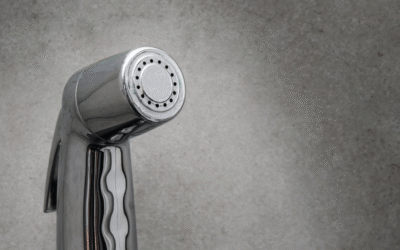In today’s fast-paced world, staying active and healthy is more important than ever. Fitness trackers have emerged as essential tools for those looking to monitor their physical activity and improve their overall wellness. With the added feature of built-in GPS, these devices allow users to track their outdoor workouts with precision, providing insights into distance, pace, and route.
The best fitness trackers with GPS not only keep tabs on daily steps and calories burned but also offer advanced features like heart rate monitoring and sleep tracking. Whether it’s for running, cycling, or hiking, these gadgets cater to various fitness enthusiasts. As technology continues to evolve, finding the right fitness tracker can make all the difference in achieving personal health goals.
- Importance of GPS: Fitness trackers with GPS provide precise tracking of outdoor activities, including distance, pace, and route mapping for improved performance monitoring.
- Key Features: When choosing a fitness tracker, consider GPS accuracy, battery life, compatibility with smartphones, and comprehensive activity tracking capabilities.
- Top Choices: Options range from high-end models for serious athletes to budget-friendly devices that offer essential features, catering to various fitness levels and needs.
- Specifications Matter: Important specifications include water resistance, display size, and compatibility, which influence the effectiveness and usability of the tracker during workouts.
- Personal Needs Assessment: Evaluating personal fitness goals and preferred metrics is crucial when selecting a tracker to ensure it aligns with lifestyle and activity preferences.
- Advantages vs. Disadvantages: While GPS-enabled fitness trackers enhance tracking precision and route mapping, potential drawbacks include higher costs and possible battery limitations during extensive GPS use.
What is a Fitness Tracker?
A fitness tracker is a wearable device designed to monitor various aspects of your physical activity, sleep, and overall health. Typically worn on the wrist, these devices can also be clipped to clothing or embedded in smart rings. Fitness trackers use advanced sensors and algorithms to collect data on steps taken, distance traveled, calories burned, heart rate, and sleep quality. Many modern fitness trackers come equipped with GPS tracking, allowing for precise monitoring of outdoor activities like running and cycling. Additionally, some models offer advanced health tracking features such as blood oxygen level monitoring and menstrual cycle tracking. The primary goal of a fitness tracker is to provide users with valuable insights into their daily activity levels, sleep patterns, and overall health, empowering them to make informed decisions to enhance their well-being.
Overview of Fitness Trackers with GPS
Fitness trackers with GPS deliver precise location data and enhance workout experiences. These devices monitor activities like running, cycling, and hiking, providing real-time metrics that inform users about their performance. By tracking distance, pace, and elevation, fitness trackers with GPS help individuals set and achieve fitness goals effectively. The inclusion of dual frequency GPS in these devices offers enhanced tracking accuracy, especially in challenging environments such as wooded or lower visibility areas.
Additionally, GPS-enabled features allow for route mapping, ensuring users can explore new paths safely. Many of these fitness trackers offer heart rate monitoring and sleep tracking, promoting a comprehensive view of overall wellness. Choosing the best fitness trackers with GPS requires consideration of features that align with personal fitness objectives and preferences.
When selecting the best fitness trackers with GPS, several key features greatly enhance user experience and performance.
Accuracy of GPS
Accuracy of GPS plays a crucial role in tracking distance and pace. The use of dual frequency GPS enhances tracking accuracy, especially in challenging environments such as wooded or lower visibility areas. Reliable devices provide precise location data, ensuring users can confidently monitor their outdoor activities.
Battery Life
Battery life impacts the usability of fitness trackers. Extended battery life enables users to engage in longer activities without interruption, making it essential for those who participate in endurance sports.
Compatibility with Devices
Compatibility with devices ensures seamless integration with smartphones and other technology. Users benefit from syncing data effortlessly, allowing for convenient access to fitness metrics and performance analysis.
Activity Tracking Capabilities
Activity tracking capabilities are vital for achieving fitness goals. Comprehensive trackers monitor various activities, including running, cycling, and swimming, providing users with detailed insights into their performance.
Additionally, these devices offer extensive health and fitness features that contribute to a holistic view of overall wellness by tracking stress levels, sleep patterns, and exercise routines.
Comparison of Top Models
This section compares the best fitness trackers with GPS, focusing on specifications and their advantages and disadvantages. A thorough assessment helps users select the optimal model based on specific needs. Among these, the Garmin fitness tracker stands out for its superior features and functionalities compared to other brands.
Specifications Overview
Specifications for the best fitness trackers with GPS typically include GPS accuracy, battery life, water resistance ratings, display size, and compatibility with mobile devices. Blood oxygen saturation is also an important specification for comprehensive health tracking. These features are crucial for ensuring reliable performance during various fitness activities.
Advantages and Disadvantages
Advantages of the best fitness trackers with GPS include enhanced tracking precision, improved route mapping, and real-time performance metrics. For instance, the Apple Watch offers advanced features such as accurate heart rate monitoring and seamless integration with iPhones, making it a strong competitor to other fitness trackers like Fitbit. Disadvantages may include higher costs, limited battery life when using GPS, and potential syncing issues with certain devices.
How to Choose the Right Fitness Tracker
Choosing the right fitness tracker with GPS involves understanding personal requirements and evaluating essential features. Most fitness trackers, especially those in the mid-range price point, typically offer common features such as exercise tracking modes and sleep monitoring, making them suitable for average users.
Assessing Personal Needs
Assess personal fitness goals, such as running, cycling, or hiking. Identify preferred metrics to track, including distance, pace, or heart rate. Consider lifestyle factors like daily activity levels, preferred workout environments, and whether water resistance is necessary. For some users, tracking menstrual cycles is also an important health feature to consider.
Understanding Features
Understand key features of fitness trackers with GPS. Look for metrics like battery life, GPS accuracy, and mobile device compatibility. Examine display size for ease of use and evaluate additional functionalities, such as heart rate monitoring, sleep tracking, and smart features like app compatibility, notifications, and music storage, to match specific fitness requirements.
Choosing the right fitness tracker with GPS is crucial for anyone looking to enhance their fitness journey. By carefully considering personal needs and preferences users can find a device that not only tracks their activities accurately but also motivates them to reach their goals. The right tracker can provide valuable insights into performance while also offering features that support overall well-being. With a variety of options available it’s essential to weigh the pros and cons of each model. Making an informed decision will ultimately lead to a more rewarding fitness experience.
What features should I look for in a fitness tracker with GPS?
When choosing a fitness tracker with GPS, consider crucial features such as GPS accuracy, battery life, water resistance, display size, and mobile device compatibility. Additionally, look for functionalities like heart rate monitoring and sleep tracking to ensure the tracker meets your specific fitness needs. Apple Watches, known for their integration with other devices and advanced features, are also a great option to consider.
Do fitness trackers with GPS drain the battery faster?
Yes, using GPS on fitness trackers can significantly reduce battery life. When the GPS is active, it consumes more power compared to normal tracking modes, so look for models with a strong battery life, especially if you’ll be using GPS frequently.
Are there fitness trackers that are waterproof?
Yes, many fitness trackers are designed to be water-resistant or waterproof. Always check the manufacturer’s specifications to confirm the level of water resistance, which is usually measured in ATM ratings or IP ratings.
How does GPS accuracy vary between fitness trackers?
GPS accuracy can vary among fitness trackers depending on the technology used and the number of satellite systems supported. Models that connect to multiple satellite systems tend to provide more precise location tracking and data.
Can a fitness tracker sync with my smartphone?
Most modern fitness trackers are designed to sync with smartphones. They usually connect via Bluetooth and require a compatible app to manage data, track performance, and customise settings. Always check compatibility with your specific smartphone model.
Which fitness tracker is best for beginners?
For beginners, a user-friendly fitness tracker like the Fitbit Inspire 3 or Garmin Vivosmart 4 is recommended. A Garmin fitness tracker is also a great option for beginners, offering various models that cater to different needs and budgets. These models offer essential tracking features, an intuitive interface, and handy mobile app integration, making it easier to maintain an active lifestyle.
How do I choose the right fitness tracker for my needs?
To choose the right fitness tracker, assess your fitness goals and preferred metrics. Consider features like battery life, GPS accuracy, water resistance, and any additional functionalities you may want, such as heart rate monitoring or sleep tracking.
What are the disadvantages of using a fitness tracker with GPS?
Disadvantages of fitness trackers with GPS include higher costs and limited battery life when GPS is in use. Some users may also encounter syncing issues with certain mobile devices, so it’s important to review user experiences before purchasing.
How We Test Fitness Trackers
At [Your Website], we take the evaluation of fitness trackers seriously to ensure we provide you with accurate and unbiased reviews. Here’s a glimpse into our rigorous testing process:
- Comfort and Durability: We wear the fitness trackers for extended periods to assess their comfort and durability during various activities.
- Accuracy: We test the accuracy of the fitness trackers by comparing their data with control devices like heart rate monitors and GPS trackers. This helps us determine how reliable the fitness trackers are in real-world scenarios.
- Battery Life: We evaluate the battery life by using the fitness trackers continuously and tracking how long they last under different usage conditions.
- User Interface and Experience: We assess the user interface and overall user experience by using the fitness trackers in everyday situations. This includes navigating menus, syncing data, and accessing various features.
- Value for Money: We compare the features and pricing of the fitness trackers to determine their value for money. This helps us recommend the best fitness trackers that offer the most benefits for their price.
By following this comprehensive testing process, we ensure that our reviews provide you with the information you need to choose the best fitness tracker for your needs.

